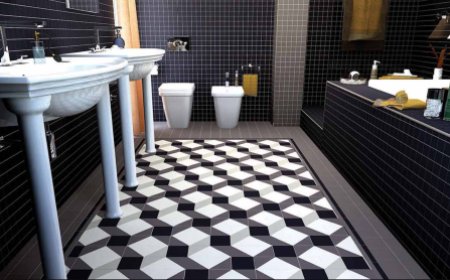No Idea? No Problem! 5 Unexpected Ways to Find Your Perfect Business Concept
Stuck without a business idea? Discover 5 unconventional strategies in No Idea? No Problem! to uncover profitable concepts - even if you're starting from scratch.

Youre ready to start a business, but theres one problem:you have no idea what to do.Dont worryyoure not alone. Many successful entrepreneurs began exactly where you are now. The good news?"No Idea? No Problem!"because great business concepts often come from unexpected places.
In this post, youll learn:
-
How tospot hidden opportunitiesin everyday frustrations
-
Whyyour hobbiesmight hold the key to a profitable venture
-
How tovalidate ideas quicklybefore investing time and money
Lets turn your blank slate into a thriving business.
Why Traditional "Brainstorming" Fails (And What Works Instead)
Sitting down andforcingyourself to "come up with an idea" rarely works. Instead, the best business concepts emerge from:
-
Observing problems(yours and others)
-
Leveraging what you already know
-
Exploring overlooked niches
No Idea? No Problem!Heres how to find inspiration when youre stuck.
1. Solve a Frustration (Yours or Someone Elses)
Look for Everyday Pain Points
-
What tasks do you (or others)complain about regularly?
-
What services/products feeloverpriced or inefficient?
Example:Airbnb started because the founders needed extra cash and noticed a shortage of affordable lodging.
Action Step:Keep an "idea journal" for a weekwrite down every minor annoyance.
Read also: I Want to Start a Business but Have No Ideas!
2. Monetize Your Skills or Hobbies
Turn What You Love Into Profit
-
What do peopleask you for help with?
-
What do you enjoy doingeven without pay?
Example:A home baker starts selling custom cakes after friends keep requesting them.
Action Step:List 3 skills/hobbiesthen research if others pay for them (check Etsy, Fiverr, or local markets).
3. Explore Micro-Niches (The "Small but Mighty" Approach)
Find Underserved Audiences
-
Look fortiny, passionate communities(e.g., pet owners of rare breeds)
-
Solvehyper-specific problems(e.g., ergonomic gear for tall gamers)
Example:"BarkBox" succeeded by targeting dog owners who wanted curated monthly treats.
Action Step:Browse niche forums (Reddit, Facebook Groups) for recurring complaints.
4. Put a New Spin on an Old Idea
Improve, Dont Invent
-
Can you make somethingfaster/cheaper/more convenient?
-
Can youtarget a different audience?
Example:Dollar Shave Club disrupted razors by offering subscriptions instead of store sales.
Action Step:Pick 3 common productsbrainstorm how to modernize or niche them down.
5. Test Ideas Fast (Before Quitting Your Job)
Validate Demand First
-
Create asimple landing page(using Carrd or Canva)
-
Runmicro FB/Instagram adsto gauge interest
-
Trypre-orders or waitlists
Example:Dropbox started with a demo video to test interest before building the product.
Action Step:Use a $100 "validation budget" to test your top idea.
Read also: The Time to Get Started is Now: A Journey of 1,000 Miles
Bonus: WhereNotto Look for Ideas
Avoid these common traps:
-
Trendy fads(e.g., crypto unless youre truly knowledgeable)
-
Overcrowded markets(e.g., generic dropshipping)
-
"Get rich quick" schemes(they rarely work long-term)
No Idea? No Problem!because sustainable businesses solve real needs.
Conclusion: Your Business Idea Is Closer Than You Think
"No Idea? No Problem!"isnt just a catchy phraseits a mindset shift. Great businesses arent about waiting for a lightning-strike idea; theyre aboutspotting opportunities hidden in plain sight.






























